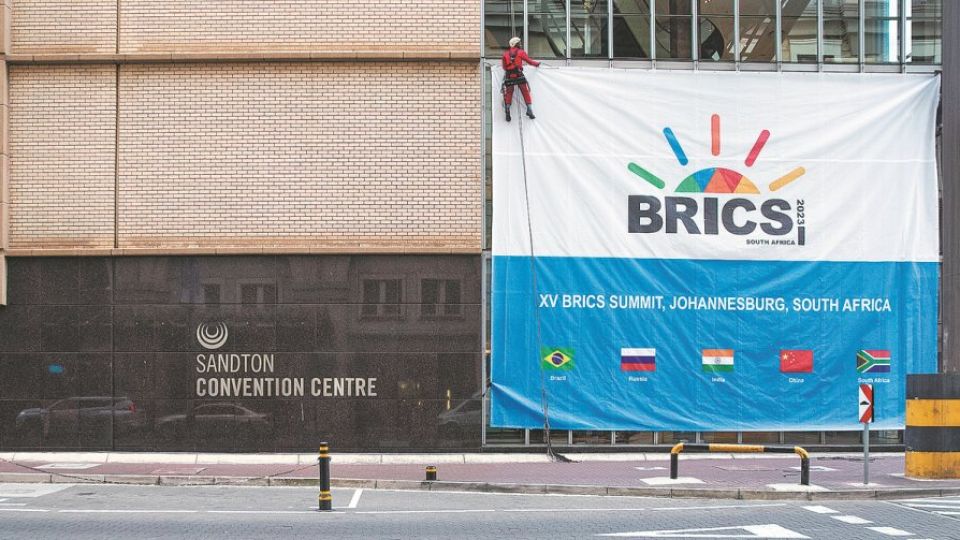August 21, 2023
BEIJING – The upcoming 15th BRICS Summit, to be hosted by South Africa, will present key opportunities to boost dialogue and cooperation between the five major emerging economies and other developing nations, and enhance solidarity between China and Africa, officials and analysts have said.
Their remarks came as the Foreign Ministry announced on Friday that President Xi Jinping will attend the Johannesburg Summit and pay a state visit to South Africa from Monday to Thursday, at the invitation of South African President Cyril Ramaphosa.
Xi and Ramaphosa will also co-chair the China-Africa Leaders’ Dialogue in South Africa, said ministry spokeswoman Hua Chunying.
The summit of the grouping, which also includes Brazil, India and Russia, has given rise to high expectations as it will be the first BRICS Summit to be hosted in person since the emergence of the COVID-19 pandemic.
Leaders from the five countries are expected to exchange views on prominent challenges in the international landscape, and enhance coordination and cooperation in international affairs, as they seek to inject stability and positive energy into a world fraught with changes and chaos, Foreign Ministry spokesman Wang Wenbin said on Friday.
The leaders will convey clear-cut messages on upholding multilateralism and focusing on common development, he said.
Xi’s visit to South Africa, his second in the past five years, comes as the two nations mark the 25th anniversary of the establishment of diplomatic relations. The leaders of China and South Africa will jointly draw a blueprint for developing bilateral ties, Wang said.
The China-Africa Leaders’ Dialogue will bring together the African co-chair of the Forum on China-Africa Cooperation, the rotating chairperson of the African Union and representatives of African subregional organizations.
According to the ministry, China’s new direct investment in Africa reached $1.82 billion in the first half of this year, a year-on-year increase of 4.4 percent. There are now over 3,000 Chinese companies conducting business in Africa.
Li Wentao, executive director and researcher at the Institute of African Studies at the China Institutes of Contemporary International Relations, said the in-person gathering of BRICS leaders will help boost the solidarity of the grouping and better drive cooperation among member countries.
“There are now increasingly high expectations for China to play a more important role in the global response to various crises, offering the world greater certainty,” he said.
One of the most important issues to be discussed at the summit, Li said, will be the expansion of BRICS. According to South African Foreign Minister Naledi Pandor, 23 countries, including Saudi Arabia, Iran, the United Arab Emirates, Argentina, Indonesia, Egypt and Ethiopia, have had formally applied to become new BRICS members, as of Aug 7.
The expansion of the grouping will demonstrate the open and inclusive nature of BRICS cooperation, Li said.
“It would showcase that BRICS, instead of serving as a geopolitical tool, has become a key platform of shared growth and benefits for developing countries and the Global South,” he said.
Li highlighted the role of BRICS in leading the way for reforming global governance, championing the interests of the Global South and enabling greater voices for the developing world in the global economic order.
“Closer collaboration between Beijing and Pretoria will help South Africa address some of the most acute issues troubling its growth, such as power shortages and unemployment issues.”
China has been the largest trading partner of South Africa for 13 consecutive years, and bilateral trade grew by 5 percent year-on-year to $56.74 billion in 2022, according to the Foreign Ministry.
Dennis Munene, executive director of the China-Africa Center at the Africa Policy Institute, said Xi’s attendance at the Johannesburg summit would demonstrate “Beijing’s confidence and commitment in advancing Sino-African comprehensive and strategic cooperation”.
“For more than seven decades, China has always valued Africa as a key partner in advancing strategic dialogue and cooperation with a broader vision of promoting South-South cooperation for common development and prosperity,” he said.


